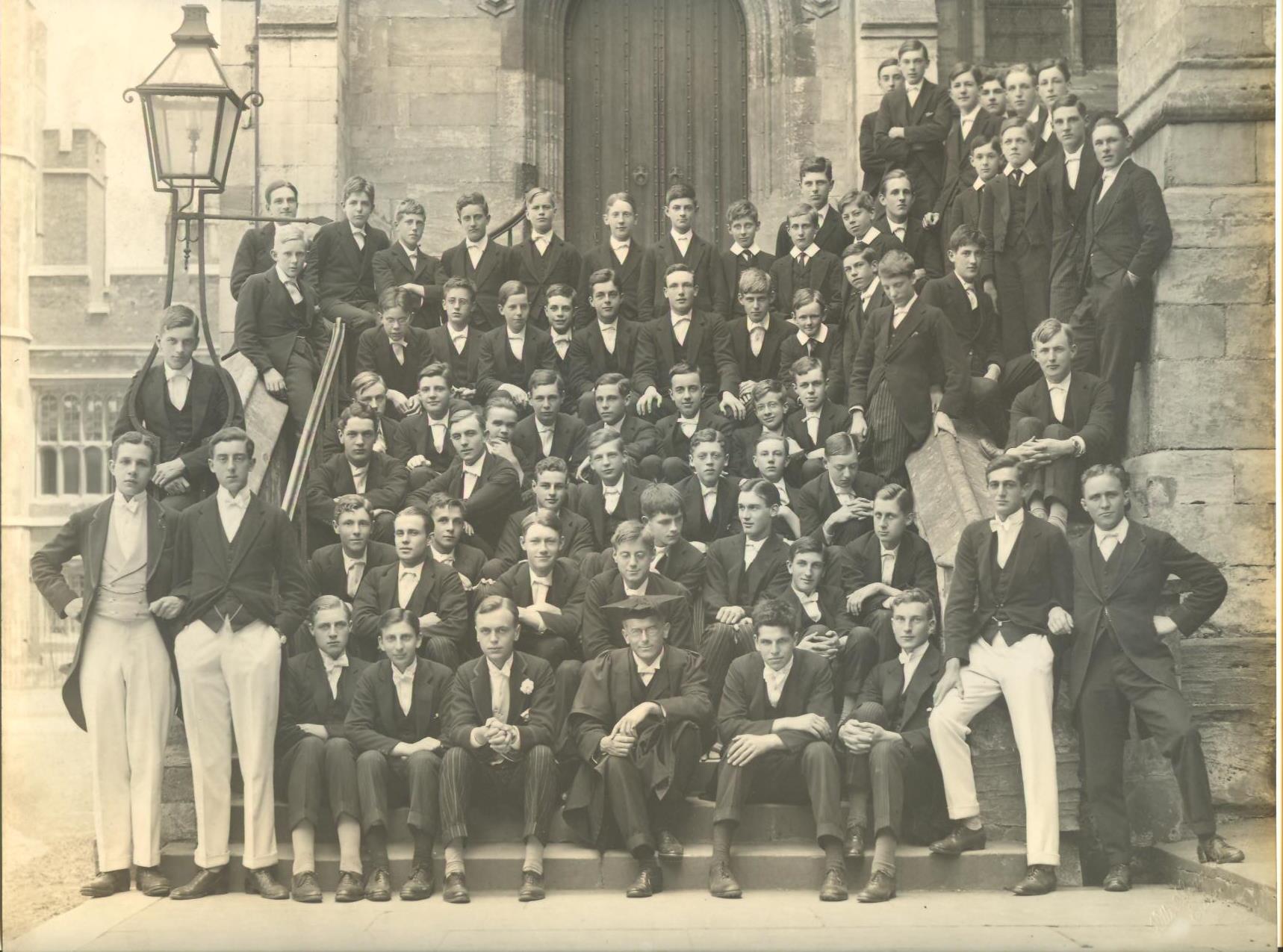
Photography via John Johnston
Private school is not just about the quality of education offered – if it were, then wealthy parents wouldn’t be buying second properties in the catchment areas of high-performing grammar schools to rig admissions systems. When the termly fees at Headington School and Dulwich College exceed £14,000, whilst the average annual salary in the UK is £29,009, people are clearly not just paying for smaller class sizes. Having children at private school is aimed at keeping them from “the great unwashed”, as they nurture the cultural references, confidence, connections, and cronyism that are foundational to the upper class’s hold on power in Britain.
So the news that delegates at the Labour Party’s annual conference approved a motion to include a commitment to “abolish private schools” in the party’s next general election manifesto has, predictably, sparked huge debate for class-obsessed Britain. Bold and radical, this commitment could become the axis of Labour’s attempt to broaden the terms of the upcoming election so that it be not just about resolving the Brexit crisis, but also about reclaiming power for the many, rather than leaving it to just the privileged few.
Specifically, the plan to abolish private schools would involve removing their charitable status and redistributing their endowments, investments and properties to the state sector: in essence, socialising the wealth of private schools so that they can be reinvested back into public services. Pearl-clutching proponents for private schools may view this as a wealth grab; in actuality, it would be a return of public finance.
“Private schooling gets you to places; the myth of meritocracy cloaks a system that is designed to allow for this”
Universities would also be limited to admitting the same proportion of private school students as in the wider population, which is currently 7%. This is huge, given that 42% of Oxbridge places go to private school pupils. That a tiny minority of people from privileged backgrounds dominate the UK’s prestigious educational institutions, and then go on to wield the levers of power in politics, media, finance, and law, is an accepted fact. But why should we accept it? Abolishing private schools begins to resolve this process of entrenched privilege by tackling the institution where it first begins.
Private schooling gets you to places; the myth of meritocracy cloaks a system that is designed to allow for this. Just last month, it was found that private schools offer easier GCSE exams than those sat by pupils in the state sector. This matters for life chances: 23 out of the 24 “Russell Group” universities take GCSEs into account during university admissions, and make no distinction between these two sets of exams. Private schools also have resources that state academies don’t: smaller class sizes, a wider range of subjects on offer, and dedicated staff who know university admissions intimately and can guide students through the labyrinthine process of UCAS, entrance exams and interview prep. Meanwhile real terms funding per student in post-16 education has fallen by 16% since 2010 and pupils are getting less learning hours. To say that this is a fair system is to hold in contempt millions of children and young people all over the country.
Soft power is wielded through a demonstration of cultural capital – think skiing holidays, trips to “the country”, the ability to talk about art in multiple European languages, knowing what the “nose” of cheese is. It’s also signalled by speaking in the right RP accent, and having “confidence” i.e. the bulletproof belief that you deserve to be in the elite.
These underpin the behavioural codes that are exhibited in Westminster, Whitehall, Fleet Street, the City and other places where top professions dominate. Private schools offer all of this, and also the earliest opportunity to develop lifelong networks: friends in high places who can also get you to high places, seemingly with little need to demonstrate expertise, hard work, or the knowledge gained from the open-minded and humble broadening of one’s horizons that comes from meeting people from different walks of life.
“Private education gives access to cultural capital – think skiing holidays, trips to ‘the country’, the ability to talk about art in multiple European languages, knowing what the “nose” of cheese is”
Comprehensive-educated students are excluded from this: chronically underfunded state academies don’t tend to prioritise providing weekly workshops to train students in presenting themselves with the polish that is demanded of them in job and university interviews. Those state-educated students who defy the odds stacked against them and “make it” to university or white-collar professions often report high levels of anxiety, stress, and imposter syndrome, because they question their right to be on that course or in that job, having come from “non-traditional” backgrounds that didn’t instil unshakeable faith in their place in the system.
This imposter syndrome isn’t a personal defect – it’s a structural effect, and it has profound consequences: the Social Mobility Commission’s most recent State of the Nation report found that university dropout rates are higher by 33% amongst poorer students. And make no illusions that those who do “break in” are at parity with their privileged counterparts. Black British working-class women in top jobs on average earn £20,000 less per year than those of privileged-origin white men. Those from privileged backgrounds who get 2:2s at university are still more likely to get a top job than working-class students who went to the same universities and got a 1st.
Private schools are fundamental to the structures that underpin these social, economic and psychological effects. The vast majority of pupils are rarely given the choice to defy the structurally coded rules of the game, where your father’s class is the most significant factor in your chances of working as a professional. When the polling suggests that it would take 560 years to close the GCSE disadvantage gap, it’s clear that the overwhelming system of congealed social mores, old boys’ networks, and the authority of historically developed power structures is stacked against most children, offering only crumbs when they deserve more.
“How is it fair that rich parents can look out for the interests of their children, but the vast majority of parents can’t?”
This is important, as many of the arguments arguing for private schools are based on the faulty logic of parents having the right to choose. Julie Robinson, CEO of the Independent Schools Council, has argued that removing parents’ ability to opt to send their children to private schools breaches the European Convention on Human Rights on the right to choose education providers. Ignoring the fact that the ECHR does not mandate a human right to fee-paying education, the current British education system can hardly be said to meet its duty of providing “available and accessible secondary and higher education, progressively made free of charge; and the liberty of parents to choose schools for their children”. Choice is not choice, nor free, when your material circumstances compel you to pick between a very limited range of options. Moreover, Finland has yet to be found in breach of its human rights duties on the matter of education – it abolished private schools and instituted a nationwide comprehensive system almost 50 years ago.
Every parent wants the best for their child, but access is limited – purposefully – because the resources are concentrated amongst the privileged few. How is it fair that these parents can look out for the interests of their children, but the vast majority of parents can’t, especially when the consequences of educational access are so far-reaching? Arguing for private schools is, in effect, arguing that it is fair to condemn the majority of children to the ill effects of circumstances beyond their control, which is not only heinous but profoundly illogical to social wellbeing. A responsible, caring society would have an education system designed to buffer against these realities, so that every child, no matter their background or potential future disruption, has access to free, high-quality schooling that best cultivates their individual potential.









